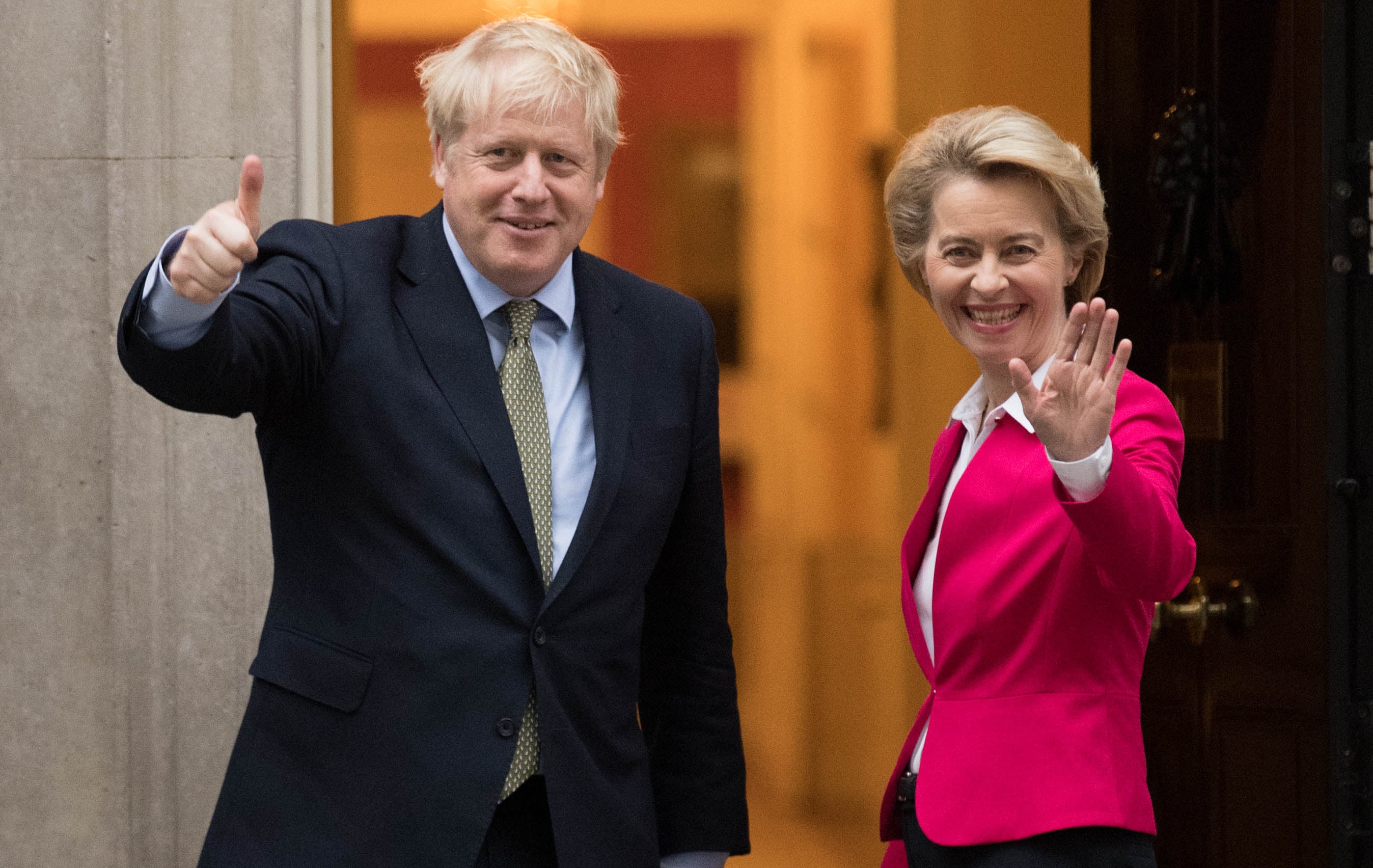Brexit: Boris Johnson in talks with EU chief in bid to revive stalled trade negotiations
Time running out to avoid no-deal Brexit on 31 December

Your support helps us to tell the story
From reproductive rights to climate change to Big Tech, The Independent is on the ground when the story is developing. Whether it's investigating the financials of Elon Musk's pro-Trump PAC or producing our latest documentary, 'The A Word', which shines a light on the American women fighting for reproductive rights, we know how important it is to parse out the facts from the messaging.
At such a critical moment in US history, we need reporters on the ground. Your donation allows us to keep sending journalists to speak to both sides of the story.
The Independent is trusted by Americans across the entire political spectrum. And unlike many other quality news outlets, we choose not to lock Americans out of our reporting and analysis with paywalls. We believe quality journalism should be available to everyone, paid for by those who can afford it.
Your support makes all the difference.Boris Johnson has suggested the onus is on the EU to make further compromises to secure a trade deal with the UK, as he prepares for talks with European Commission president Ursula von der Leyen
Downing Street played down the prospect of any breakthrough in the stalled talks when the two leaders speak on Saturday, characterising the planned phone call as a chance to “take stock” of the situation.
Speaking ahead of the talks, Mr Johnson said that there was “a deal to be done” if the EU wanted it, but said the chances of an agreement depended on “our friends and partners across the Channel”
The prime minister insisted that the UK was “very well-prepared” for a no-deal Brexit, which he refers to as a departure on “Australian terms”, because Australia has no trade deal with the EU.
After two weeks of “intensified” talks following Mr Johnson’s threat to walk away from the table, significant differences remain between the two sides on issues like fisheries, state aid and the Brussels demand for a level playing-field on standards.
Face-to-face talks are expected to resume in London next week, with just over 50 days to go before Mr Johnson’s self-imposed deadline to get agreement or crash out in a no-deal Brexit.
In a statement on the conclusion of the latest round of talks in Brussels, Mr Johnson’s chief negotiator Lord Frost said that progress had been made.
But he said he agreed with his EU counterpart Michel Barnier that “wide divergences remain on some core issues”, adding: “We continue to work to find solutions that fully respect UK sovereignty.”
Mr Barnier is reported to have told European Union ambassadors that the UK has shown no sign of movement on the issues holding up and trade deal and suggested that Mr Johnson will need to take a political decision to change his stance if agreement is to be reached.
News wire Bloomberg reported that Mr Barnier told the diplomats that he believes London wants a deal but has yet to “internalise” the necessary compromises and concessions needed.
Failure to secure a trade agreement by 31 December would force the UK to operate under World Trade Organisation rules, imposing tariffs on many goods, such as 10 per cent on the price of imported cars.
In reality, a deal must be struck by the middle of this month in order to have time for it to be ratified by the European Parliament and national and regional parliaments around Europe before the UK leaves the single market and customs union at the end of 2020.
Asked on Friday if the UK could get a deal in the next 10 days, Mr Johnson said: "I very much hope that we will, but obviously that depends on our friends and partners across the Channel.
“I think there is a deal to be done, if they want to do it.
"If not, the country is, of course, very well prepared. As I have said before, we can do very well with on Australian terms, if that is what we have to go for."




Join our commenting forum
Join thought-provoking conversations, follow other Independent readers and see their replies
Comments